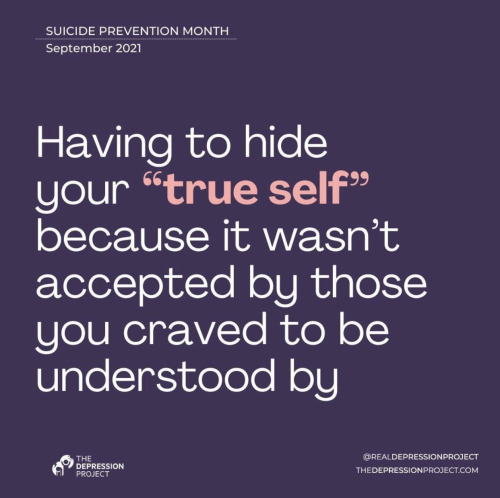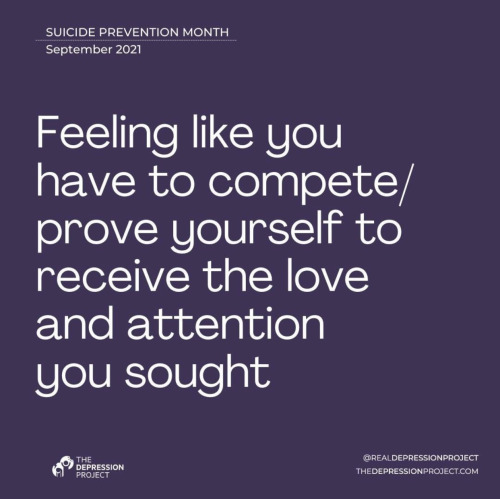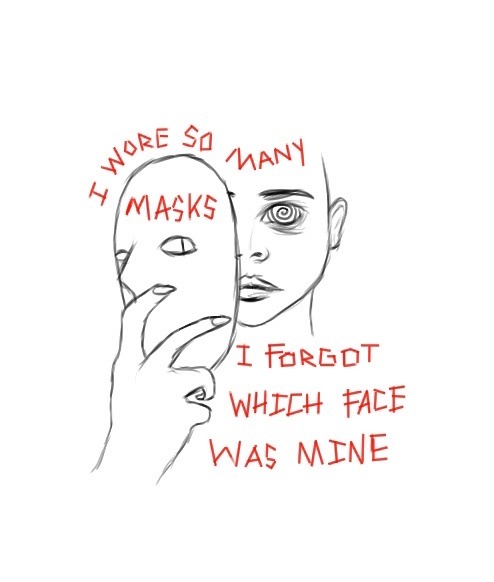Explore the world, one post at a time
Cptsd - Blog Posts
I’ve often heard and seen mental illness be compared to having a lil demon in your brain but i disagree because demons are cool and sexy and my illnesses are quite frankly stupid losers. I think pyramid scheme promoter is a lot more fitting all things considered.
“‘She loves me like a dog’ but not in the soft, blindly loyal puppy way. She loves like a stray, mangy and flea ridden, hiding in the back of an alleyway or under the porch of the abandoned house next door.
She loves violently and ferally and wildly protective because she knows how it feels to be alone during the winter and she can’t go back to that, she can’t.
She loves with teeth and claws because those are the only body parts that have ever saved her, and she mistakes every hug for a chokehold.
She loves in a way that looks an awful lot like violence and feels an awful lot like desperation.”
-some random guy on my tiktok fyp at 3pm on a sunday
Me and my ptsd and dissociative amnesia
hate hate hate it when adults tell younger people they're "too young to experience (x.)"
pain, memory loss, mobility aids, and disability are not exclusive to older people. young people can be disabled.
im nearly sixteen, and i have a hellish mixture of scoliosis and kyphosis. on top of that, i experience amnesia DAILY. my back doesnt hurt every day, and my brain doesnt refuse to remember important things just for you to say only old people can experience these things.
i want certain people to know that rn the only thing standing between me and their physical well being is the law
and yet it did, so i'll make my peace with the fact that at least i did learn something, therefore making it all not a completely useless experience.


How Grounding Works:
Grounding techniques often use the five senses—sound, touch, smell, taste, and sight—to immediately connect you with the here and now. For example, singing a song, rubbing lotion on your hands, or sucking on some sour candy are all grounding techniques that produce sensations that are difficult to ignore or distract you from what’s going on in your mind.
This helps you directly and instantaneously connect with the present moment. At the same time, grounding reduces the likelihood that you will slip into a flashback or dissociation.
Grounding is highly personal. What may work for one person may trigger anxiety or flashbacks in another. You may need to do some trial and error before you figure out what grounding techniques work best for you. Pay attention to the coping mechanisms you’ve already developed to help you get through flashbacks and anxiety and see if you can build on them and/or use them as grounding techniques.
Grounding Techniques
To connect with the here and now, do something (or several things) that will bring all your attention to the present moment. Be sure to keep your eyes open while you’re grounding yourself so you’re aware of everything that’s going on around you.
If you notice that you’re slipping into a flashback or a dissociative state, try some of these grounding techniques.
Sight
Complete a crossword puzzle, sudoku, word search, or other puzzles.
Count all the pieces of furniture around you.
Play a distracting game on your tablet, computer, or smartphone.
Put on your favorite movie or TV show.
Read a book or magazine.
Take a mental inventory of everything around you, such as all the colors and patterns you see, the sounds you hear, and the scents you smell. Saying this out loud is helpful too.
Smell
Get some essential oils that remind you of good times (freshly cut grass, rain, clean laundry, or sugar cookies, for example) and smell one.
Light a scented candle or melt scented wax.
Sniff strong peppermint, which also has the benefit of having a soothing effect.3
Sound
Call a loved one.
Put on some nature sounds such as birds chirping or waves crashing.
Read out loud, whether it’s a favorite children’s book, a blog article, or the latest novel.
Talk out loud about what you see, hear, or what you’re thinking or doing.4
Turn up the radio or blast your favorite song.
Taste
Bite into a lemon or lime.
Let a piece of chocolate melt in your mouth, noticing how it tastes and feels as you roll it around with your tongue.
Suck on a mint or chew peppermint or cinnamon gum.
Take a bite of pepper or some hot salsa.
Touch
Cuddle and pet your dog or cat if you have one.
Drink a hot or cold beverage.
Grab an article of clothing, a blanket, or a towel and knead it in your hands or hold it to your cheek. Concentrate on what it feels like.
Hold an ice cube and let it melt in your hand.
Massage your temples.
Pop some bubble wrap.
Put your hands under running water.4
Rub your hand lightly over the carpet or a piece of furniture, noting the texture.
Take a hot or cool shower.
Other
Dance.
Go for a walk or run.
Send a letter or card to someone you care about.
Sit in another room or area for a change of scenery.
Stretch your arms, neck, and legs.
Take 10 slow, deep breaths.
Write in a journal about how you’re feeling or keep a list of prompts handy that you can use to decide what to write about.
Grounding Can Be Done Anywhere
The nice thing about using grounding as a coping technique is that many of these techniques can be done in any environment.5 You might be home alone or out in public, but once you feel that flashback or dissociation coming on, you can use grounding to move your focus back to the present.
Working on grounding takes dedication and it becomes easier over time. If these particular grounding techniques don’t work for you, try something else. For example, some people find that a rubber band on their wrist is useful to snap them back to the moment. The ultimate goal is to live in the now and focus on the present when the past starts coming up.
source


07/25/2021
i don‘t know how much there is left of me before i disappear completely








Sourced from ‘real depression project’ on Instagram.
[ID: Pictures with white writing on purple backgrounds, first & last pictures are pink writing on purple backgrounds. Words in quotation marks are also pink.
Picture 1; ‘childhood trauma isn’t just the result of being abused. It can also be the result of…’
Picture 2; ‘Being left to “fend for yourself” when you needed safety and security’.
Picture 3; ‘Having your feelings invalidated and denied whenever your sought emotional support’.
Picture 4; ‘Being forced to “self sooth” alone and find escape from your painful reality (eg. Video games)’.
Picture 5; ‘Having to hide your true self because it wasn’t accepted by those you craved to be understood by’.
Picture 6; ‘Having your parents constantly prioritise themselves (or their work) over yourself’.
Picture 7; ‘Feeling like you have to compete/prove yourself to receive the love and attention you sought’.
Picture 8; ‘Please know you are worthy of love & compassion- don’t let your parents inability to give you this make you conclude otherwise’. /end ID]

Hello hope you're doing good. Question, if you want to answer: what does catatonia feel like for you? I watched a friend have her first catatonic episode last year and she didn't have a good memory of it afterward. I'd like to get some idea of what goes on there. Obviously if this is an unpleasant topic ignore
There are different types of catatonia and not everyone will have the same symptoms; I dont even have the same symptoms every episode. So my experience is just that; mine.
Withdrawn catatonia feels like being stuck inside my body. I can see and hear everything going on, but I can't react to it as normal. It's kind of as if I'm externally inanimate; I can't move (or can barely move), but if you move my limbs for me they stay in whatever position you put me in. I often get stuck in uncomfortable positions because one of the first symptoms I usually get is abnormal or exaggerated movements (and Im hypermobile so its even worse).
It's very hard to describe the actual feeling that goes with it though. It's like being drugged by your own nervous system. My body feels like lead and all my processes feel slowed. Even though I am aware, depending on the episode and trigger I may be confused and/or dissociated.
But I also experience excited catatonia, which is pretty much the opposite of what I described. I cant slow down. I either cant speak or cant communicate normally. I'll repeat things over and over, I'll do the same movements over and over - which usually ends up with me hurting myself. I feel very panicked when I experience this. It doesnt happen as often as withdrawn type, though. And when I do experience it, its usually a severe episode where I flip back and forth between withdrawn and excited.
For me, withdrawn episodes are usually triggered by stress like - dissociation, anxiety, and trauma. Excited episodes are usually triggered by autistic/schizophrenic nervous system overload. Both can be related to/triggered by psychosis, and there's decent overlap between my catatonic episodes and disorganized speech/thinking episodes.
So yeah. If anyone's ever wondered what it might be like, now you know.
notalgia is so strange because what do u mean i long for things that remind me of the worst times of my life?
i feel so disconnected from myself and my life, it kinda feels like im on autopilot or smth
life doesnt feel very real or tangible, it feels distant
i have such a complicated relationship with the word “goals.”
i grew up constantly being asked what my goals or ambitions are for my life. i had answers when i was younger, id come up with different jobs all the time.
but as i got older - and sicker, i found it increasingly hard to feel encouraged by having goals.
it felt more like a weight that i wasnt able to carry, like i was carrying a massive burden on my back with everything going on in my life, and then i was expected to pretend like that burden wasnt there, and to jump up as high as everyone else who didnt have that burden.
as i continued to get sicker (to the point i had to leave school early) the questions of goals never stopped, and that was deeply confusing for me.
my goal was take care of myself, that was it. but that never seemed to be enough for people.
i would answer saying “im just trying to take care or myself and heal at the moment.” and they would ask me again, “but what are your life and career goals?”
why is taking care of myself not a good enough goal?
so now as i am in less of a crisis stage of life, im starting to open myself up to more “career and life goals.”
but thinking of goals is incredibly hard now.. i find myself feeling sick with anxiety thinking about even simple goals.. and i think im just really terrified of “failing” again and having to quit like i did with school.
i also feel like i have spent many years now trying to gain a healthy relationship with rest, with healing, with not being what society deems as “productive,” that i feel a bit uneasy about returning to more “productive” goals.
i dont want to lose what ive learnt over my time healing, i dont want to pressure myself too much to go back to being a “productive member of society.”
there are things i want to achieve in my life, of course there are. i dont lack motivation, in fact i have a really hard time having enough time and energy to do all the things im really eager to do.
its just that i have such a complicated relationship and past with the normal path that society wants people to take in life, im scared of losing myself, and failing in re-engaging in such things.
lately if im not constantly occupying my brain i spiral.
my mind is exhausted from the constant stimulation but i dont know what else to do.
healthy coping looks different for everyone right, but i really wish it was easier to figure out what was right for me without all this trial and error stuff 😭
ive been avoiding my shower for months (been using literally any other shower) but i finally used it today and i didnt even cry so i think 2025 is going pretty good so far fingers crossed everybody manifest tysm
i find it interesting the overlap of c-ptsd symptoms with autistic traits.
i get asked all the time if im autistic. i even started questioning it myself just from how often this happened to me.
but while yes i have a lot of symptoms that are a part of many autistic peoples experiences, i wasnt always this way. i developed these symptoms throughout my childhood as i went through more and more trauma.
i remember when i wasnt sensitive to noise, light, etc. i remember when my social abilities were practically the same as my neurotypical peers. i remember when i never needed to carry stim toys everywhere i went. just to name a few.
anyways, i have so much in common with my autistic friends. while we arent the same, we get each other on a level that i havent found with many neurotypicals. ive also found that i often gravitate towards autistic people without meaning to.
i think its nice that we can find community where we didnt really expect it.
i really want to reapproach the way i see success.
i think ive slowly been doing it for a few years now, but theres definitely more i can do.
i always think of it in the grand life goal kind of way.
but it doesnt need to be that..
and for me, i really wanna see if i can find things in my day-to-day life that are, a success.
did i put myself out of my comfort zone that day trying something new?
did i take a deep breath and calm my thoughts before getting frustrated at somebody?
did i show care to myself even when i felt unworthy of life?
did i do anything where if i was reading a book about me. would i be proud of the bee on that page?
because the answer is probably yes most days. but im not treating myself as if thats the case.
im so harsh to myself and i know this. i give grace to others where i would never for myself.
i just want to treat myself gently.
so cheers to small successes, the steps forward even when theres also steps backward..
and to not just treating others the way we want to be treated, but treating ourselves that way too.













